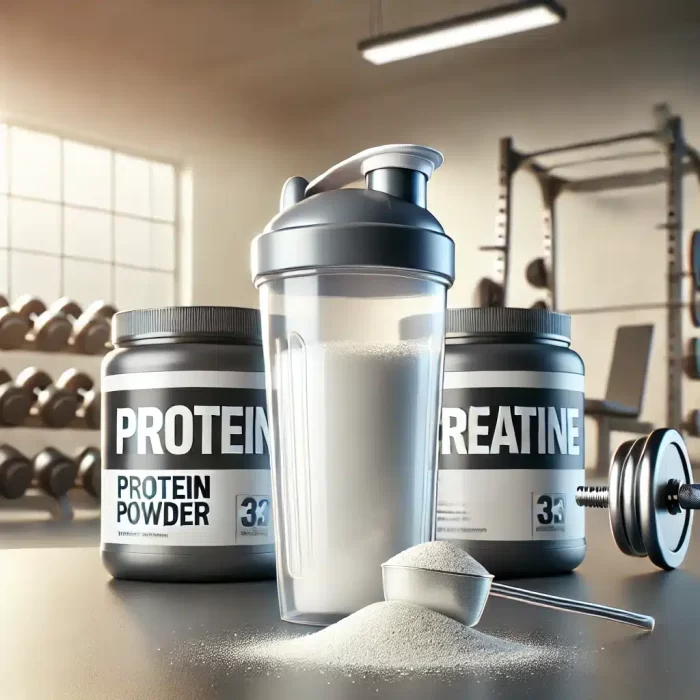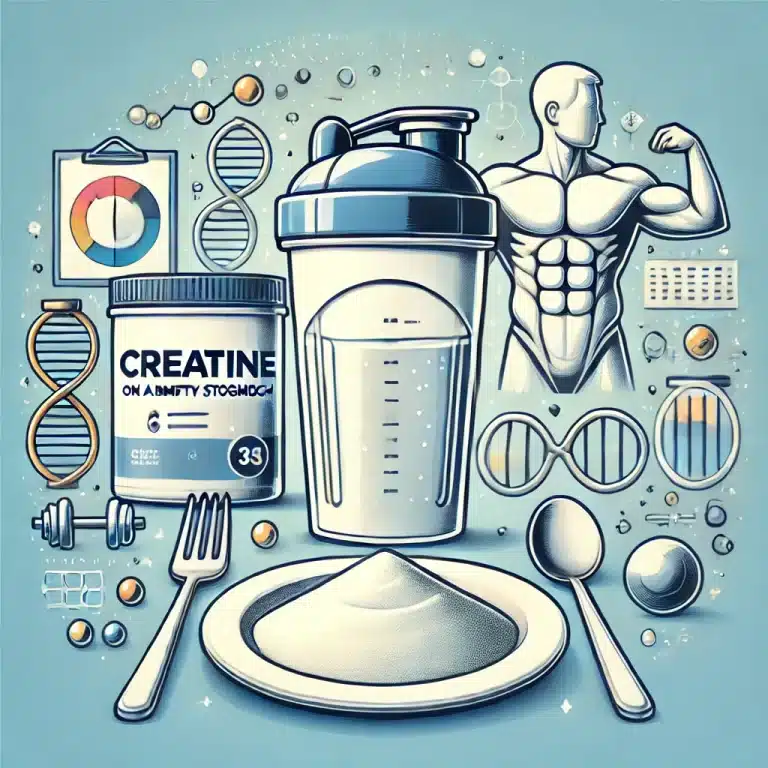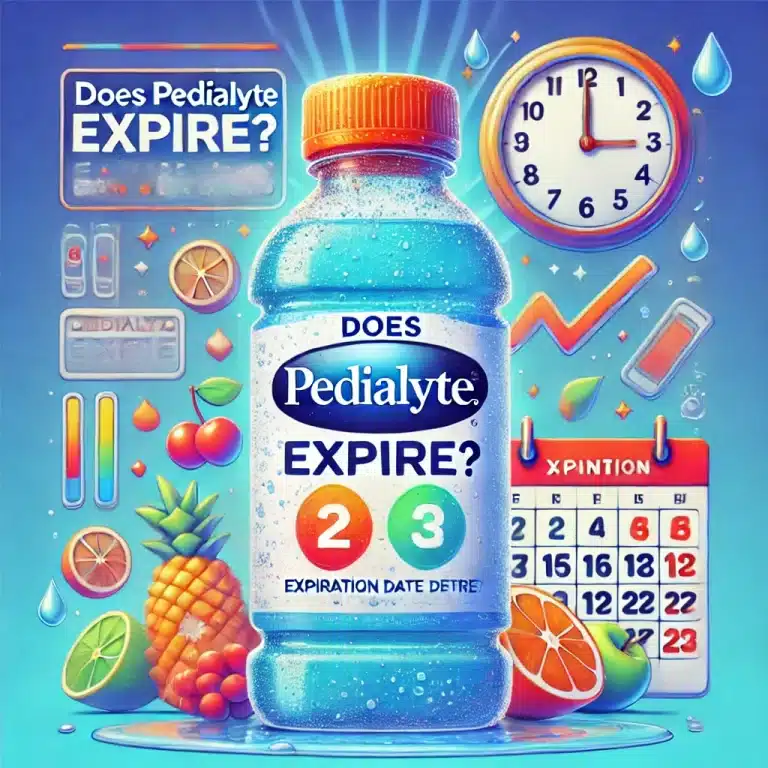Can You Mix Creatine With Protein Powder?
Let us turn back to that post-gym moment.
Protein scoop ready, blender bottle in hand, you are standing at the counter in your kitchen. Your body is yelling for recovery; your shirt is wet, your muscles are toast. You stop then, staring at that white tub of creatine monohydrate on the shelf.
“Wait,” you wonder, “should I just toss the creatine in with my protein shake?” Alternatively is that, like a poor idea?
You are not alone if you have been there. One of those basic gym concerns that appears straightforward is mixing creatine with protein powder; nevertheless, everyone has a different perspective once you start researching. Others feel it’s wise. Some believe it to be useless. Others swear their performance or digestion suffered.
And then, of course, there’s the internet—blasting you with contradicting advice, odd bro science, and forum arguments from 2012.
So let us simplify this. We’re breaking it all down regardless of your level of experience—from a rookie at the gym to seasoned lifter wanting to maximize your program. Without causing anxiety. There isn’t any filler. There isn’t any robotic scientific jargon that feels like reading a textbook.
Simply a real-deal response to a real-deal inquiry:
Can one combine protein powder with creatine?
Why This Question Even Matters
You would think it wouldn’t be a major concern.
Regarding supplements, however, many do not wish to guess. Nobody wants to squander time, products, or meddle with their advancement. Particularly if you work hard at the gym, you want to know that what you are doing is beneficial rather than detrimental.
And this question—combining protein with creatine—hits that ideal range of uncertainty. Because on paper both are advantageous. Strength, explosiveness, and muscle endurance are among the things creatine supports. After you break down in a workout, protein powder—especially whey—helps restore and grow muscular tissue.
Both of them have their place. They both operate.
But would they be better off cooperating?
We are about to get into just that.
Creatine + Protein Powder: The Simple Answer
Let’s straightforwardly clear the fundamental response from the path.
- Indeed, you can very definitely combine protein powder with creatine.
- It is indeed safe.
- No, no chemical interaction exists that either cancels something out or causes damage.
Studies abound, gym veterans have experience, and actual data supports this. There is no physiologically or nutritionally based justification for stating that two cannot be taken simultaneously. Depending on your schedule and objectives, combining them may even help.
Here’s where it gets fascinating, though: just because you can mix them doesn’t always indicate that’s the best course of action for you. Your body’s reaction, the other you’re mixing it with, and your level of dedication to keep constant will all affect it.
Let us therefore enlarge and investigate all the angles.
The Timing Factor: When Are You Taking Them?
Usually, the first question people ask following the assurance of safety is this one.
Timing matters—but not in the way most people believe. Unlike caffeine or pre-workout, creatine has different effects. It does not “kick in” thirty minutes after you take it. It works gradually soaking your muscles. For this reason, consistency beats timing.
Your muscles will store creatine and use it when you require explosive power—that is, during lifting, running, or wrestling—as long as you are daily ingesting it.
With your protein shake, you can thus take it post-workout and that is okay. Actually, a lot of sportsmen follow just that. But if you take it first thing in the morning and your protein in late evening? That likewise works.
Regarding proteins, the timing is far more important. Protein following training aids in the beginning of the muscle healing process. So a post-workout drink still makes sense—especially if you won’t have a complete meal for another hour or two.
That protein plus creatine mix right after a workout might be quite handy whether are training fasted or you just want to maximize recovery. Just scoop, shake, drink, then done.
Can You Mix Creatine With Protein Powder?

The short answer is yes, mixing creatine with protein powder is not only safe but also convenient and potentially beneficial. There is no evidence to suggest that combining these two supplements diminishes their effectiveness. Taking them together may offer synergistic advantages, helping you maximize both performance and recovery.
From a practical standpoint, combining creatine and protein powder in a single shake saves time and effort, especially if you’re consuming them post-workout. This simplicity can make it easier to adhere to a consistent supplementation routine, which is crucial for seeing results.
Benefits of Mixing Creatine and Protein Powder
- Convenience: Life may, quite rightly, grow hectic. One smoothie that simplifies your regimen and lessens the need for several preparations is mixing creatine with protein powder. When time is of the essence, this is especially useful following exercise. As a nutritionist, I generally advise whenever feasible to streamline supplement regimens. Easy is more likely to be stackable, which is crucial for long-term success.
- Muscle repair and rehabilitation depend heavily on protein since it supplies the amino acids required to rebuild injured muscle tissue. Conversely, creatine restores phosphocreatine supplies, which are vital for renewing energy both during and following heavy exercise. Taken together, they create a potent team that targets long-term muscle-building as well as immediate recovery needs.
- Combining protein and creatine seems to increase muscle protein synthesis—the process by which muscles heal and get stronger. For those undergoing resistance training especially, this is quite helpful since the combo can help to stimulate higher increases in muscle growth and strength.
- Together post-workout, consuming protein powder and creatine guarantees your muscles get the nutrients they need when they are most responsive. Often called the “anabolic window,” this period can improve nutrient absorption and recovery.
- Creatine and protein taken together meets demands for both energy and repair. While protein helps muscle fibers to be structurally rebuilt, creatine increases energy available for high-intensity activities. The one-two punch maximizes results and general performance.
What Does the Research Say?
Combining protein powder with creatine has been well investigated, and the findings usually show their compatibility and potency. Researchers have investigated how they affect muscle development, recuperation, and performance, therefore offering a wealth of data supporting their combined application.
- Enhanced Strength and Muscle Mass:
- Published in the Journal of Strength and Conditioning Research, a landmark study found that those fed with both protein and creatine showed noticeably more increases in strength and lean muscle mass than those taking either supplement alone. This emphasizes the combined possibilities of these two supplements, especially for individuals involved in resistance exercise.
- Improved Recovery and Reduced Soreness:
- Combining protein powder and creatine post-workout improved recovery according to studies in medicine and science in sports and exercise by lowering signs of muscle injury and soreness. Participants said they felt less tired and more ready for the next training sessions, which emphasizes the need for this mix for active people.
- Timing and Nutrient Uptake:
- Combining protein and creatine during the post-workout period sometimes known as the “anabolic window” improved nutritional absorption, according to a study by the International Society of Sports Nutrition. This timing guarantees that when most responsive, muscles get the necessary building blocks for development and repair.
- Benefits for Aging Populations:
- While studies on teenagers and younger athletes abound, studies on older populations have also shown the advantages of protein supplements and creatine. Combining the two has been demonstrated to help with general physical performance, reduce age-related muscular atrophy, and increase strength. This implies that the combination is flexible and advantageous for people of many ages.
- Long-Term Safety and Efficacy:
- Many long-term studies have validated, within advised dosages, the safety of both protein and creatine supplements. Combining them does not raise any danger of side effects as long as users follow the correct dosages and keep appropriately hydrated.
These studies taken together confirm that combining protein powder with creatine is not only safe but also rather successful in reaching fitness objectives. The science supports this dynamic team whether your goals are muscle building, recuperation enhancement, or sports performance improvement.
Likewise, whether you’re wondering whether you should mix pre-workout with creatine, or not!
Best Practices for Mixing Creatine and Protein Powder
- Timing Matters: Together post-workout, consuming protein powder with creatine is best. This timing takes advantage of the anabolic window, when your muscles are especially sensitive to nutrition, therefore facilitating effective recovery and muscle regeneration. Still, consistency is essential. Taking them at any time of day will still help even if you cannot grab them straight after your exercise. The benefits of creatine are cumulative, hence daily dosage regardless of timing works.
- Stick to Recommended Dosages:
- Usually, one takes 3 to 5 grams of creatine per day. Starting with a loading phase—20 grams daily split into four doses for five to seven days—beginners may rapidly overload muscle reserves. The Standard is 20–30 grams per serving, although individual needs depend on body weight, degree of exercise, and dietary protein intake.
- Choose the Right Liquid: Those trying to cut calories often choose to mix protein powder and creatine with water. For those concentrating on muscular development, milk is a wonderful choice since it delivers calories and extra protein. Steer clear of acidic juices since they over time destroy creatine.
- Prioritize Quality: Choose reliable products that go through third-party testing as the supplement business is less strictly controlled than the pharmaceuticals. To guarantee the quality and safety of your goods, search for certifications such as Informed Choice or NSF International.
- Shake Thoroughly: Use a premium shaker container or blender to guarantee a homogeneous distribution of protein powder and creatine. This helps your shake to have better texture and stops clumping.
Potential Drawbacks:
Although combining creatine with protein powder is usually harmless, several possible negative effects should be taken into account:
- Digestive Discomfort: Some people have digestive problems including bloating, gas, or a small stomach upset, especially if they are new to supplements or take them in great quantities. Reducing these symptoms will depend on progressively raising your dosage and guaranteeing enough water.
- Caloric Intake: Particularly when combined with milk, peanut butter, or other calorie-dense foods, protein smoothies can pack major calories. Those trying to keep a calorie deficit or lose weight should consider these extra calories consumed in daily consumption.
- Hydration Needs: In muscle cells, creatine helps to retain water, which, in inadequate total water consumption, can cause dehydration. Avoiding possible adverse effects including headaches, tiredness, or muscular cramps requires keeping appropriate levels of hydration. Drinking one extra glass of water for every serving of creatine ingested is a good general guideline.
- Lactose Intolerance or Allergies: Many protein powders, especially those made from whey or casein, include lactose, which can aggravate stomach problems in those who are lactose intolerant. Turning to a plant-based or lactose-free protein powder will help with this.
- Over-Supplementation: The addition of several supplements to your regimen in search of improved results can be tempting. Combining too many goods in one shake, however, can cause overlapping ingredients, too high nutritional consumption, or erratic negative effects. See a healthcare expert always before combining many supplements.
- Quality Concerns: Not every vitamin is made exactly like another. Certain goods could have artificial additions, contaminants, or mislabeled components that might endanger health. Choosing premium, outside-of-house verified supplements helps to reduce this danger.
- Timing Sensitivity: While protein’s effect on muscle regeneration is more instantaneous, creatine’s advantages are gradual and not directly related to time. While this is less important if your regular protein and creatine consumption are adequate, failing to drink your protein and creatine shake around the anabolic window may somewhat lower recovery efficiency.
Being aware of these possible negative effects will help you to guarantee a safe and efficient supplements program suited for your exercise objectives.
Frequently Asked Questions:
Does mixing creatine with protein powder reduce its effectiveness?
No, combining protein powder with creatine does not lessen their potency. Both supplements work on their own, and taken together they can even improve their advantages.
Can I mix creatine and protein powder ahead of time?
Yes, but if you want to keep nutrient integrity, drink the shake within a few hours. Particularly if milk is used, refrigeration of the combination helps maintain freshness.
Should I take creatine and protein powder on rest days?
Correct. Since creatine supplements rely on progressively saturating muscle reserves, consistency is essential. On rest days, protein powder can also satisfy your daily requirements and help with recovery.
What type of protein powder is best to mix with creatine?
Popular for its quick absorption and great biological value, whey protein is Those with dietary restrictions or preferences will find great substitutes for plant-based proteins such as rice or pea protein.
Can I add other supplements to my creatine and protein shake?
Indeed, but consider total dosages and constituent interactions. Among popular additions are pre-workout supplements, glutamine, or BCAAs. If you’re not sure about particular combinations, always see a healthcare provider.
The Role of a Balanced Diet:
Although supplements like protein powder and creatine might improve your exercise program, they should augment rather than replace a balanced diet. To support general health and performance, give entire diets high in key nutrients top priority lean proteins, complex carbs, good fats, and lots of fruits and vegetables.
Many times, as a nutritionist, I remind clients that supplements are only supplements. Any great fitness program starts with a well-balanced diet, regular exercise, and enough rest.
Final Thoughts: Can You Mix Creatine With Protein Powder?
Simply said, most individuals would find it quite logical since you can indeed combine creatine with protein powder.
Combining them has no disadvantage. The evidence supports it; convenience is indisputable; if your objectives are to increase strength, hasten recuperation, or streamline your program? That’s a wise action.
You will not suddenly absorb less; you are not going to cancel out any impacts. Actually, combining them—especially post-workout—can help one stay consistent, which is more important than exact timing or tiny item overanalysis.
So avoid becoming mired in the cacophony.
Go for it if adding a scoop of creatine to your protein shake keeps you on target and saves you time. Showing up, working hard, recovering effectively, and doing it all again tomorrow will bring the actual benefits.
And combining two? That’s only natural in smoothing out the procedure.






